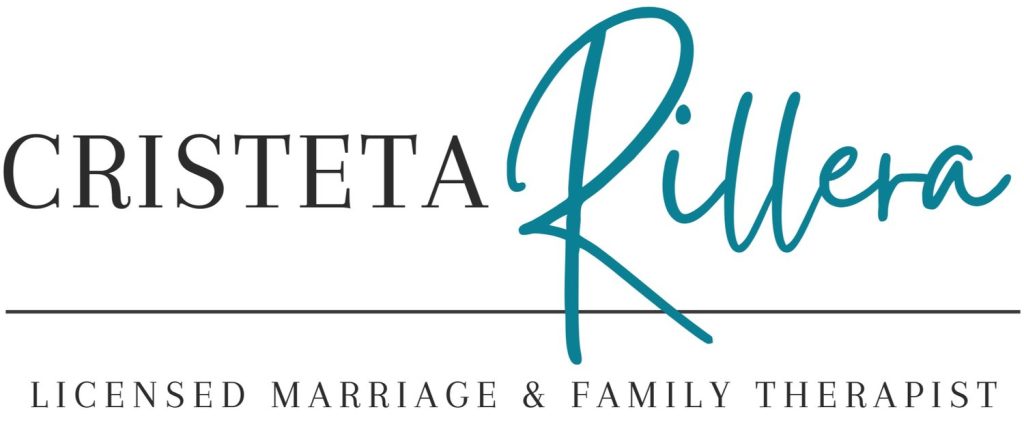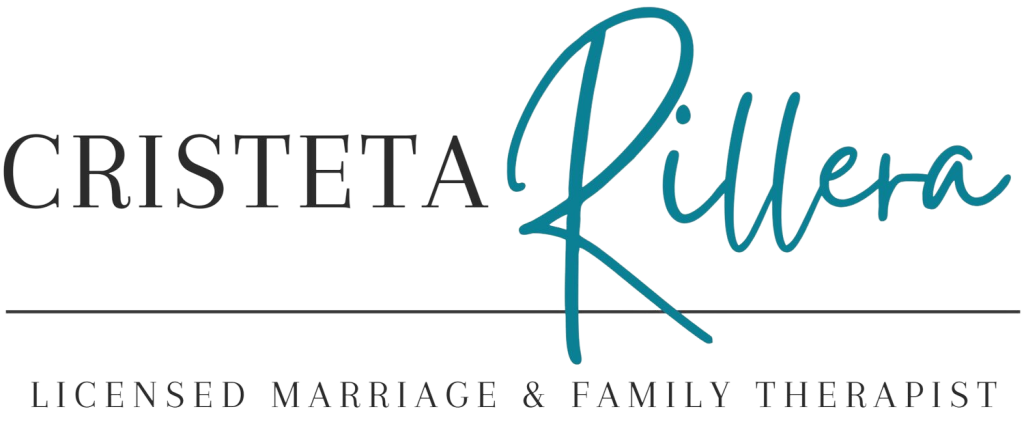The Role of Crisis Counselors
Crisis counselors play a vital role in supporting and assisting individuals experiencing traumatic events or emotional turmoil. By offering guidance on coping strategies and resources for further help, clients can navigate challenging times more effectively. Crisis counselors use psychotherapy techniques to address trauma-related emotions such as anxiety, depression, anger, guilt, or shame.
Empathetic Listening Skills in Crisis Counseling
One of the most important skills that crisis counselors possess is empathetic listening. This involves truly understanding and validating the feelings of their clients without judgment or bias. Empathetic listening allows the counselor to build rapport with their client while creating a safe space for them to express their thoughts and emotions openly.

Addressing Anxiety, Depression, Anger, Guilt, or Shame
In addition to providing emotional support during times of crisis, anxiety therapy, stress therapy, trauma therapy, and relationship therapy are essential components of effective crisis counseling. By addressing these underlying issues head-on with evidence-based treatment approaches like cognitive-behavioral therapy (CBT) or dialectical behavior therapy (DBT), crisis counselors can help clients develop healthier ways of thinking about themselves and their situations.
Developing Coping Skills
Crisis counselors also teach clients how to develop coping skills specifically tailored for managing immediate crises. These may include stress reduction techniques like deep breathing exercises or mindfulness meditation practices, which can help individuals stay grounded and focused during difficult times. Additionally, crisis counselors encourage positive thinking patterns that promote resilience and foster a sense of hope in the face of adversity.
Stress Reduction Techniques
- Deep breathing exercises: Taking deep breaths can help soothe the nerves and alleviate anxiety or panic.
- Progressive muscle relaxation: This technique involves tensing and relaxing different muscle groups to release tension throughout the body.
- Music therapy: Listening to calming music can have a soothing effect on both mind and body during times of stress.
Mindfulness Meditation Practices
- Mindfulness meditation encourages individuals to focus on present-moment experiences without judgment, helping them cultivate greater self-awareness and emotional regulation skills over time.
Crisis counselors provide a valuable service to those in need, offering compassionate and knowledgeable support during times of crisis. Coping skills are essential for managing immediate challenges when dealing with difficult situations.
Coping Skills for Immediate Crises
Teaching effective coping skills tailored specifically for managing immediate crises is essential to crisis counseling. These may include stress reduction techniques like deep breathing exercises or mindfulness meditation practices and encouraging positive thinking patterns that promote resilience during difficult times. This section will explore some common coping strategies and how they can be applied in crisis situations.
Stress Reduction Techniques
In a crisis, it is usual to experience amplified nervousness and strain. One way to manage these feelings is by practicing stress reduction techniques such as:
- Deep Breathing Exercises: Taking slow, deep breaths can help calm the nervous system and reduce anxiety. Try inhaling deeply through your nose for four counts, holding your breath for four counts, then exhaling slowly through your mouth for another four counts.
- Progressive Muscle Relaxation (PMR): PMR involves systematically tensing and relaxing different muscle groups throughout the body. This technique helps release tension stored in muscles due to stress or anxiety.
- Aromatherapy: Using essential oils like lavender or chamomile can create a calming environment conducive to relaxation and emotional regulation during times of crisis.

Mindfulness Meditation Practices
Mindfulness meditation encourages individuals to focus on their present-moment experiences without judgment or attachment. Doing so can develop greater self-awareness and emotional control when facing challenging situations. Some popular mindfulness practices include:
- Breathing Meditation: This simple practice involves focusing on the sensation of your breath as it enters and leaves your body. Concentrating on this natural process can redirect attention away from negative thoughts or emotions.
- Body Scan Meditation: A body scan meditation encourages individuals to mentally “scan” their bodies for areas of tension or discomfort while maintaining a non-judgmental attitude towards these sensations.
- Loving-Kindness Meditation: Also known as Metta meditation, this practice involves silently repeating phrases like “May I be happy, may I be healthy, may I be safe” while directing loving-kindness towards oneself and others.
Incorporating these coping skills into one’s daily routine can provide invaluable support during times of crisis. Additionally, seeking guidance from trained professionals such as crisis counselors can enhance an individual’s ability to navigate challenging situations with resilience and emotional stability. Crisis counseling involves providing support and developing coping skills to help individuals manage immediate crises. Crisis counselors are trained to provide emotional support and guidance during difficult times. If you or someone you know is in crisis, please call the National Suicide Prevention Lifeline at 1-800-273-TALK (8255) for immediate assistance.
Coping skills for immediate crises can help individuals manage their anxiety and stress, allowing them to recover from their situation. Hotlines and support services provide long-term solutions that can help people find stability during times of crisis.
Hotlines and Support Services
In cases where an individual faces imminent danger, such as domestic violence or suicidal thoughts, hotlines staffed by volunteer crisis counselors provide immediate support over the phone until more long-term solutions can be arranged. These crisis hotlines are crucial lifelines for people needing assistance during their darkest moments.
Volunteer-staffed Hotlines
Crisis counselors on these hotlines offer emotional support and guidance to callers experiencing various issues. Some well-known examples include the National Suicide Prevention Lifeline, which provides 24-hour help for those contemplating suicide or self-harm, and the National Domestic Violence Hotline, providing resources and advice for individuals affected by abusive relationships. By offering support through these confidential services, crisis counselors play a vital role in helping people cope with overwhelming emotions while connecting them to appropriate resources.

Long-term Solution Planning
Beyond providing immediate emotional support during crises, crisis counseling involves helping clients develop coping skills that will enable them to manage future challenges more effectively. This includes identifying triggers for negative emotions like anxiety or depression, teaching stress reduction techniques such as deep breathing exercises or mindfulness meditation practices, and encouraging positive thinking patterns that promote resilience during difficult times.
- Anxiety: Crisis counseling might recommend relaxation techniques like progressive muscle relaxation or guided imagery exercises to reduce anxiety levels.
- Trauma: In cases involving trauma, counselors may suggest grounding techniques or cognitive restructuring to help clients process their experiences and regain control.
- Relationship issues: For couples experiencing relationship difficulties, crisis counseling might involve teaching communication skills and conflict resolution strategies to improve their interactions’ quality.
In addition to hotlines, numerous support services are available for needy individuals. These include community mental health centers offering affordable therapy options on a sliding scale basis; online forums like 7 Cups, where users can connect with trained listeners who provide emotional support; and local support groups such as those offered by the National Alliance on Mental Illness (NAMI). By exploring these resources, individuals facing crises can access various avenues for assistance tailored to their unique needs.
Hotlines and support services are invaluable resources for those needing crisis counseling. Becoming a qualified crisis counselor requires specialized training, licensing, and education; these qualifications will ensure that individuals receive the best possible care during their time of need.
Unpacking 5150 Holds
Understanding what defines a 5150 hold is important when discussing crisis counseling. This section will explore who has the authority to put someone on hold, what happens if you’re placed on one, the emotions involved in this process, and self-care tips for clients, family members, and therapists themselves.
Authority to initiate a 5150 hold
A 5150 hold can be initiated by qualified professionals such as police officers, clinicians, or medical staff who believe an individual poses a danger to themselves or others due to mental illness. The person must meet specific criteria like being gravely disabled or presenting an imminent risk of harm before they can be placed under involuntary psychiatric evaluation for up to 72 hours. For more information about the legal aspects of involuntary holds, consult resources like the National Alliance on Mental Illness (NAMI).

The process and emotions involved
If an individual is placed on a 5150 hold, they are typically transported to a designated facility where they undergo an assessment by mental health professionals. During this period (usually lasting no longer than three days unless extended through court order), patients may experience various emotions, including fear, confusion, and frustration, as their freedom is temporarily restricted while receiving necessary care from crisis counselors.
- Fear: Being involuntarily held at a psychiatric facility can evoke feelings of fear related not only to treatment but also a potential stigma associated with mental health issues.
- Confusion: Patients might feel overwhelmed trying to understand why they have been deemed dangerous enough to warrant temporary confinement against their will without a clear initial explanation upon arrival at the hospital setting.
- Frustration: The process can be frustrating for the individual and their loved ones, as they may feel powerless.
Self-care for all parties
Everyone must be involved in a 5150 hold, including clients, family members, and therapists, to practice self-care during this challenging time. Clients should focus on taking care of themselves physically and emotionally. At the same time, families can benefit from seeking support through therapy or joining support groups such as NAMI’s Family-to-Family program. Therapists must also prioritize their well-being by setting boundaries, engaging in regular supervision sessions with colleagues to discuss difficult cases, and practicing relaxation techniques like mindfulness meditation or deep breathing exercises when needed.
Unpacking 5150 Holds is a complex process, but understanding the authority and emotions involved can help create an environment of safety for all parties. With this knowledge, we can now explore how crisis counseling looks in different settings such as mental health clinics, hospitals or schools, and community organizations.
Crisis Counseling in Various Settings
Once licensed, crisis counselors can work in various settings, such as mental health clinics, hospitals, schools, or community organizations. They may also offer private practice services to clients seeking help during times of crisis while educating them about relevant mental health disorders that could be contributing factors to their distress.
Mental Health Clinics and Hospitals
In mental health clinics and hospitals, crisis counselors are vital in providing immediate support for individuals experiencing emotional turmoil or life-threatening situations. These professionals are trained to assess the severity of a client’s condition and develop an appropriate intervention plan tailored specifically to their needs. This may involve coordinating with other healthcare providers, offering referrals to specialized treatment programs, or even advocating for the patient when necessary.

Schools and Community Organizations
Schools often employ crisis counselors as part of their student support services team. In this setting, they assist students struggling with academic performance due to personal issues like bullying, family problems, or substance abuse concerns by providing emotional support and developing coping skills needed for overcoming these challenges.
Similarly, crisis counselors are highly sought after by community organizations such as homeless shelters and domestic violence centers to address the unique needs of their clientele with expertise. By working closely alongside case managers/social workers within these facilities, crisis counseling professionals can provide invaluable guidance regarding resources for long-term stability (e.g., housing assistance and job training programs) while helping clients navigate the complex emotions that often accompany traumatic experiences.
Private Practice and Online Services
In addition to traditional work settings, many crisis counselors establish a private practice, offering one-on-one sessions with clients who require specialized support during difficult times. This allows them greater flexibility in scheduling appointments and tailoring therapeutic approaches based on individual client needs/preferences, ultimately resulting in more personalized care.
Furthermore, the advent of technology has given rise to a new wave of online counseling services designed specifically for addressing mental health crises remotely. Through secure video conferencing platforms or even text-based chat options, crisis counselors can now provide immediate assistance regardless of geographical location, making it easier than ever before for individuals experiencing distressing situations to access professional help when they need it most.
Crisis counseling involves providing support to individuals who are experiencing a crisis. Crisis refers to any threatening or threatening situation to a person’s life or well-being. Crisis counseling professionals are trained to provide emotional support, develop coping skills, and support individuals in crisis. They may work in various settings, such as mental health clinics, hospitals, schools, or community organizations. Crisis counselors may also offer private practice services or online counseling services.
If you or someone you know is in crisis, please call the National Suicide Prevention Lifeline at 1-800-273-TALK (8255) or text “HOME” to the Crisis Text Line at 741741 for immediate assistance.
FAQs
Crisis counseling is crucial in helping individuals and couples cope with traumatic events, anxiety, stress, and relationship issues. It provides timely support during critical moments when people are most vulnerable and assists them in regaining stability and control over their lives. This type of therapy can prevent long-term psychological damage from unresolved traumas.
The main elements of crisis counseling include assessing client needs, establishing rapport, identifying precipitating factors contributing to the crisis state, exploring feelings and emotions related to the event(s), developing effective coping strategies specific to each client’s situation, implementing interventions, evaluating progress towards stabilization or resolution, and ensuring follow-up care as needed.
The four primary goals of crisis intervention include 1) stabilizing clients experiencing acute distress; 2) mitigating symptoms associated with emotional turmoil; 3) restoring pre-crisis functioning levels; and 4) connecting clients with appropriate resources for ongoing support and recovery.
Conclusion
Crisis counselors utilize psychotherapy techniques to help manage immediate crises while teaching effective coping skills tailored specifically to each individual’s needs. They also provide support during imminent danger, such as domestic violence hotline support and arranging safe housing options.
Clients, family members, and therapists must practice self-care by setting personal boundaries and utilizing strategies that promote well-being during crisis counseling sessions. If you or someone you know needs crisis counseling services, please visit cristetarillera.com to learn more about how we can assist you.










